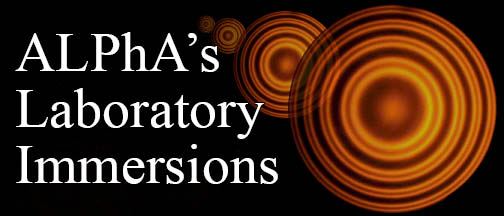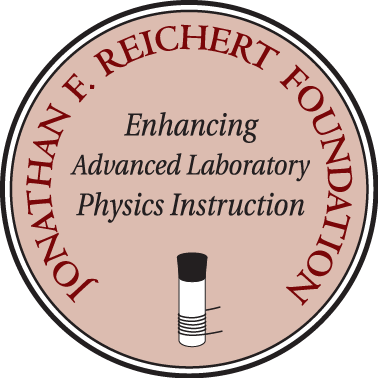- Home
- What We Do
- Laboratory Immersions
- Immersions 2025
- Imm2025QuantumDesign_VersaLab
Quantum Design, San Diego, CA
Electric, thermal, and magnetic characterization of magnetite
July 14, 2025 to July 16, 2025
Number of setups available: 1
Maximum number of participants: 4
------------------------------------------------------------------------------------------------------------------------------------------
The study of condensed matter/solid state physics not only provides a diverse playground of unique fundamental physics phenomena, but its practical application constitutes the backbone of current and future technologies based on semiconductor, magnetic, superconducting, and quantum materials.
based on semiconductor, magnetic, superconducting, and quantum materials.
Quantum Design's VersaLab® combines a research and teaching measurement platform for physics education and student laboratories primarily geared towards solid-state physics and material science. The VersaLab is a portable, cryogen-free cryocooler-based material characterization platform, that allows students to gain hands-on experience in sample testing using an industry leading physical properties measurement system. With a temperature range of 50 – 400K, this 3 Tesla platform is perfect for accomplishing many types of materials characterization in a limited space, with no requirements for cryogenic liquids or high power infrastructure. The VersaLab is a fully automated turnkey system with a user-friendly interface, and utilizes technology developed for Quantum Design's popular Physical Property Measurement System (PPMS®).
More specifically, this laboratory immersion will focus on electric transport (DC and AC), thermal (heat capacity), and magnetic (vibrating sample magnetometry) measurements of magnetite. Magnetite is an easy to obtain mineral that undergoes a metal-to-insulator Verwey transition near 120 K. This metal-to-insulator transition can of course be observed directly in electric transport measurements, but also becomes apparent in temperature dependent measurements of the heat capacity and magnetic moment. Students will therefore learn how to identify phase transitions using a variety of experimental methods at cryogenic temperatures and high magnetic fields.
Electric Transport Learning Outcomes:
- Apply basic Ohm’s Law principles to both 4-wire and 2-wire measurements
- Learn the differences between a DC and AC resistance measurements
- Students will develop proficiency in techniques and considerations for wiring and mounting samples for electric transport measurements
- Students will apply foundational knowledge of relevant solid-state physics to resistance vs. temperature characterization
Heat Capacity Learning Outcomes:
- Students will apply foundational knowledge of relevant solid-state physics to heat capacity measurements
- Students will gain experience with small sample handling
- Students will observe a first order phase transition and experience the technical nuances with such a measurement
Vibrating Sample Magnetometry Learning Outcomes:
- Apply the fundamental concept of magnetic induction and Faraday’s law to magnetometry
- Students will apply foundational knowledge of relevant solid-state physics to magnetic moment vs. temperature and moment vs. field characterization
- Students will become familiar with concept of magnetic hysteresis
- Students will develop proficiency in techniques for optimal mounting samples for magnetic measurements to minimize instrumental artifacts
Attendees will acquire hands on experience with sample preparation, setting up the measurement sequences and configuring the VersaLab for each experiment, and subsequent data analysis. Everything required will be provided on site.
VersaLab Estimated Cost (depends on options): ~$159,000
Hosts and Mentors:
 Randy Dumas is an Applications Scientist at Quantum Design. He received his Ph.D. in 2009 from the University of California, Davis on the topic of reversal mechanisms in magnetic nanostructures. As a postdoctoral fellow at the University of Gothenburg, Sweden he studied next generation magnetic and spin wave based data storage and processing paradigms. Randy joined Quantum Design in August 2016 and his specialty lies primarily in magnetic characterization of both fundamentally interesting and technologically relevant materials. Randy is also a board member of the Discovery Teaching Lab (https://discoveryteachinglabs.com/) initiative
Randy Dumas is an Applications Scientist at Quantum Design. He received his Ph.D. in 2009 from the University of California, Davis on the topic of reversal mechanisms in magnetic nanostructures. As a postdoctoral fellow at the University of Gothenburg, Sweden he studied next generation magnetic and spin wave based data storage and processing paradigms. Randy joined Quantum Design in August 2016 and his specialty lies primarily in magnetic characterization of both fundamentally interesting and technologically relevant materials. Randy is also a board member of the Discovery Teaching Lab (https://discoveryteachinglabs.com/) initiative
 Stephen Tsui is an Associate Professor of Physics at California State University San Marcos. He received his Ph.D. in 2008 from the University of Houston where he investigated resistive switching phenomena. He joined the Cal State San Marcos faculty shortly thereafter and developed the first physics advanced laboratory class. In 2015, Stephen spent his semester sabbatical at Quantum Design to gain experience in magnetic measurements. A strong proponent of undergraduate research, Stephen currently works with students to investigate spin reorientation phenomena and is a board member of the Discovery Teaching Lab (https://discoveryteachinglabs.com/) initiative.
Stephen Tsui is an Associate Professor of Physics at California State University San Marcos. He received his Ph.D. in 2008 from the University of Houston where he investigated resistive switching phenomena. He joined the Cal State San Marcos faculty shortly thereafter and developed the first physics advanced laboratory class. In 2015, Stephen spent his semester sabbatical at Quantum Design to gain experience in magnetic measurements. A strong proponent of undergraduate research, Stephen currently works with students to investigate spin reorientation phenomena and is a board member of the Discovery Teaching Lab (https://discoveryteachinglabs.com/) initiative.
Please note that the Jonathan F. Reichert Foundation has established a grant program
to help purchase apparatus used in Laboratory Immersions. Limitations
and exclusions apply, but generally speaking the Foundation may support
up to 50% of the cost (with a maximum of $8000) of the required equipment.




